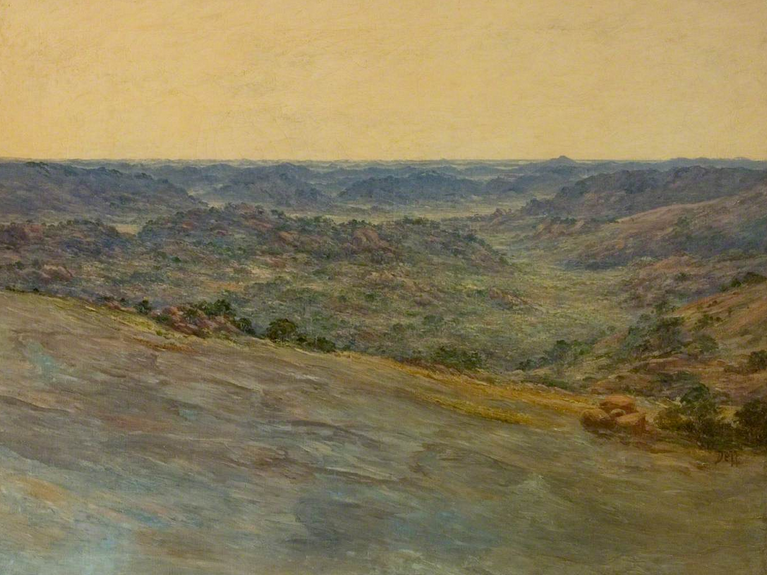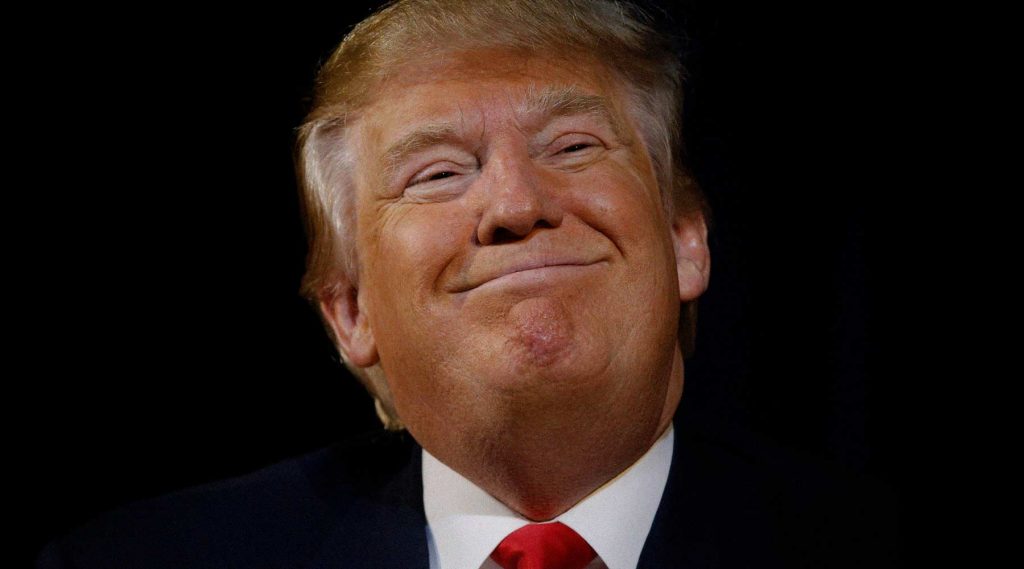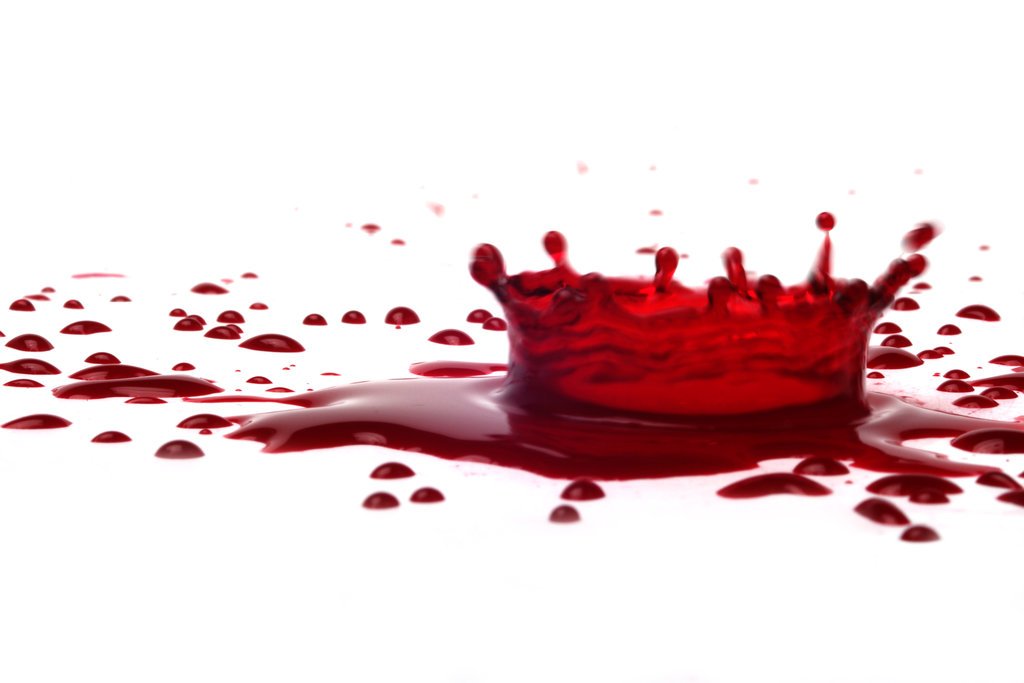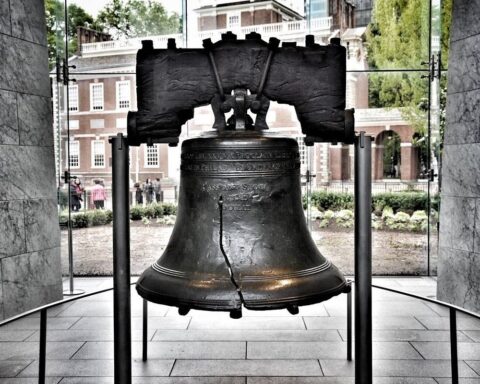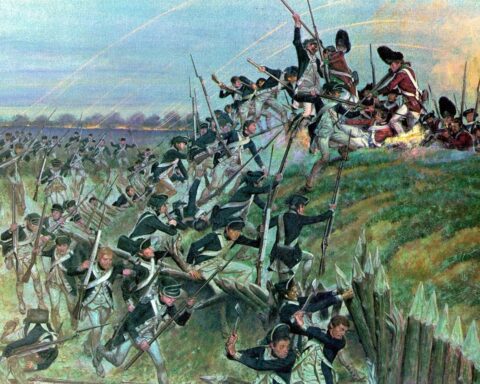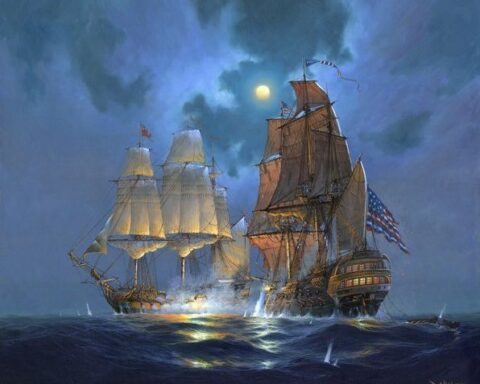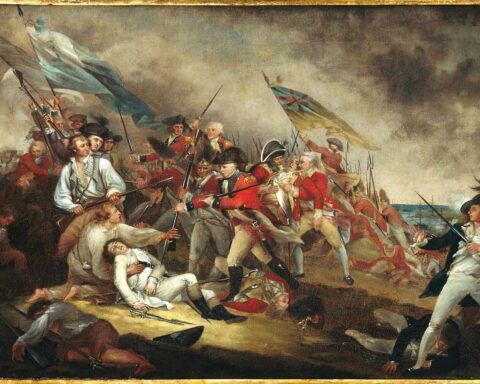Editor’s Note: The following comprises the tenth chapter of Sunshine and Storm in Rhodesia, by Frederick Courteney Selous (published 1896). All spelling in the original.
CHAPTER X
It was about seven o’clock when we entered the first gorge leading in amongst the foothills, which were here well wooded. Mr. Blöcker, who is an excellent walker and a very good shot, I told off to scout on foot a short distance ahead of us, whilst Messrs. Simms and Fletcher, two Cape Colonists and both steady, reliable men, scouted on the left and right flanks respectively.
After we had proceeded for about an hour through very broken and, for the most part, thickly wooded country, we emerged upon a huge bare granite rock. Here Mr. Simms rejoined us and reported that as he was scouting on the left flank, upon emerging from a patch of bush, he had come suddenly upon four Kafirs, one carrying a gun whilst the rest were armed with assegais. These men quickly moved out of sight, fearing to attack Simms lest there should prove to be more white men behind him, whilst he on his side did not care to fire on them, as he did not know how many more natives there might be close at hand.
Beyond us there now lay a large open grassy valley enclosed on every side by rocky granite hills. In its broadest part this valley was over a mile in width, but at its top end it gradually narrowed into a rocky gorge, which apparently led on to some higher ground beyond the farthest hills we could see. Much of the valley was under cultivation, and a splendid crop of corn was standing, still unreaped, in the fields. Mazhlabanyan told me that these cornfields belonged to Banyubi, a tribe allied to the Makalakas, and who are the aboriginal inhabitants of the district. After carefully looking over the country on ahead, I decided to keep straight up the valley, and make my way to the higher ground by the gorge I have spoken of. When we were half-way through the open valley, Kafirs began to shout to one another amongst the hills to our left, and presently we saw some, but they were a long way off and we could not make out whether they were armed or not. I now gave orders that any Kafir who approached us must be fired on if he was armed, but not unless.
We had just entered the neck of the gorge and were finding a good deal of difficulty in getting our horses through a stream that was too deep to ford and could only be crossed on flat slippery stones, when some shots were fired at us from a rocky kopje about 300 yards to our left rear. However, as the Kafirs who had fired were hidden behind rocks, we could see nothing of them, nor did we catch a glimpse of the enemy until we had all crossed the stream. We then saw a few natives amongst the wooded hills directly ahead of us, and at once commenced a skirmishing fight with them. They were in no great numbers, and they retired before us without firing many shots or giving us much of a chance at them. In this way we had advanced slowly but steadily in extended order for about 300 yards through rocks and bush when we suddenly came upon a kraal filled with cattle, at the foot of a mass of bare castellated rocks. From these rocks we drove the enemy, without any loss on our side, though many of us were fired at at very close quarters, but, as has so often been remarked, Kafirs always make wretched shooting if at all hustled. Personally I had one little piece of luck. A Kafir had fired either at me or Mr. Blöcker—we were close together—from behind a buttress of rock, and as I knew that his rifle was therefore empty, and hoped he had been alone, I ran up the flat slope of rock on which I was standing, thinking to get a good shot at him round the corner of the rock. When I got there, however, I did not see the man who had fired at me, but found another Kafir waiting for me with his rifle at his shoulder. He was on a lower level than the rock slab on which I was standing, and must have heard me approaching as he was evidently on the lookout for me to show myself. I was carrying my own rifle at the ready, but had to get it up to my shoulder before I could fire. There was no time to get a sight, so, looking at him, I raised my rifle as quickly as possible and fired, and at almost the same moment he fired at me. The result was mutually disappointing, as we both missed our mark. How I managed to make so bad a shot I don’t know, as the Kafir was not more than fifteen yards from me. However, had I waited for the few seconds necessary to get the sight on him, he might very likely have shot me first, whilst my quick snap-shot very probably disconcerted him and made him miss. Immediately he had fired, he dodged behind a rock, and I did not get another chance at him.
We now took possession of the rocks above the cattle kraal, and got a few good shots at a lot of Kafirs running away amongst the trees to the left. Having placed several men as sentinels on the highest boulders, I went down to look at the cattle, considering it very bad luck having ever come across them, as I did not like to leave them and then continue my reconnaissance, nor did I think it would be possible to drive them out of the hills to the Tuli road without any Kafirs on foot to help. I first thought of shooting the lot, but as there were over a hundred, could not spare the ammunition that would have been required for the purpose. I therefore determined to try and drive them out of the hills and take them to Bulawayo.
With a great deal of trouble we got them down to the broken ground above the stream, but farther than this we could not drive them, as they scattered in all directions, but would not go down the rocks. Over and over again we rounded them up and tried to force them to go the way we wanted them to take, but without success, and I was once more thinking of shooting them all when some shots were fired at us from the broken ground to our left front. By a mistake the sentinels had left their posts on the top of the rocks and rejoined the rest of our party, and the Kafirs, now heavily reinforced, had got back to positions amongst the wooded cliffs above us without being observed. I at once sent Mr. Blöcker and a few men who were good shots to take up a position beyond the stream, from which they could check the enemy’s fire, whilst the rest of the men were crossing. I myself with Mr. Claude Grenfell and a few more men protected the rear. However, before we got down into the open ground, we had four horses killed and two men wounded, Mr. Stracey and Mr. Munzberg. How it was that more men were not hit, I don’t know, as the bullets were pinging about pretty freely. Everyone, I think, although I spread the men out as much as possible, had some narrow shaves, and my Sergeant-Major got two bullets through his gaiter, and one through his trousers between his legs, yet he was not touched.
Not knowing how many Kafirs we had to deal with, nor whether some of them would not try to get round in front of us, I now sent Mr. Blöcker on with half the troop and the wounded men to take up a position on ahead, on our line of retreat; whilst Mr. Grenfell and I with the rest of the men remained behind to keep the Kafirs from coming out of the broken ground behind us. However, having lost a few of their number, they showed no disposition to leave the shelter of the rocks, so we retired slowly and off-saddled on an open spot just beyond the hills.
The Kafirs with whom we had been engaged had been for the most part, I think, members of the native police force, as I had seen several myself who were wearing the white knickerbocker trousers of the police uniform. They all, too, seemed to be young men, and were shooting with Winchester rifles; and did not shoot badly either—that is for natives. It was most fortunate that neither of the two men hit was mortally wounded, as if they had been we should have found it very difficult to carry them. Mr. Stracey was shot through the knee, though fortunately the bone was not much shattered, so he not only did not lose his leg, but will eventually, the doctor promises, have as good a limb as ever. Mr. Munzberg, a young German, was hit in the small of the back, and had a wonderful escape, as the bullet struck a kind of chain belt he was wearing round his waist. It went through this, but being much flattened out lost its velocity, and only inflicted a deep flesh wound.
In some ways the Kafirs may be said to have had the best of this encounter, as we left them in possession of the field. However, whilst we lost no men, we left a few of our opponents ready for burial, and our retreat, although it was a retreat, was of the slowest and most orderly character. Our horses were simply a nuisance to us amongst the granite boulders, and we could have done much better without them. Indeed, I saw enough this day to assure me that all subsequent fighting in the Matopos would have to be done on foot.
During the firing old Mazhlabanyan had behaved with great coolness. At first, when we were driving the Kafirs from the rocks above the cattle kraal, he had remained below holding my horse, but after recrossing the stream, I told him to go on with Mr. Blöcker. Finding that I did not immediately follow, the old fellow seems to have got very nervous about my safety, as after asking Mr. Blöcker a great many times where his master was, he came back to look. However, old Jack will be comfortably settled on my Company’s land when these troublous times are over, and when the rinderpest has died out, and fresh cattle can be brought into the country, his fidelity will not be forgotten. After an hour’s rest we again saddled up, and made straight across country to Dawson’s store, at the Umzingwani ford on the Tuli road, twenty-five miles from Bulawayo. Here we were able to obtain a stretcher on which to carry Mr. Stracey, Mr. Munzberg still being able to ride.
As there could now be no doubt that there were hostile Kafirs at no great distance, I advised Mr. Boyce, who was in charge of the store, to lock up everything and accompany us to Bulawayo, which he did.
We started at sundown, all of us taking it in turns to carry our wounded comrade, and reached the post station, twelve miles from Bulawayo, soon after midnight. Here we passed a wretched night in the mule stable, as we were all wet through, a soaking rain having come on about an hour previously, which lasted for the rest of the night.
I sent two men on at once to Bulawayo, asking that a cart and a doctor might be sent out for the wounded men in the morning. The cart was sent, but no doctor could be spared. However, by mid-day we reached Bulawayo, and the wounded men were soon made comfortable in the hospital.

